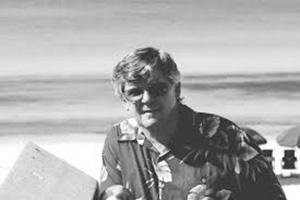By Hardy Jackson
I am writing this on my birthday.
Good time for reflection.
Which I am doing in the form of a story that was told to me many years ago. I have repeated it often since then, to students, to friends and once at a literary conference. This is the first time I have put it on paper.
Reflect with me if you like.
The setting is Kansas. Sometime in the 1890s.
The principle character is an elderly farmer. Widowed now these many years. He and his wife had come out after the Civil War and homesteaded the land. There they raised a family — four sons — who with their families took up farms around his.
The road to the state capital ran through his property, and on it, one day, there came a traveling drummer, advance-man, out announcing the imminent arrival of a circus that was scheduled to set up shop shortly after the legislature left town. “One show replacing another,” he told the farmer with a wink when he stopped to ask him if he could paint his barn.
“What?” the farmer replied.
“Paint your barn, for free.”
Well, the barn needed painting, and the price was right, so the farmer agreed.
The next morning, work began.
What the farmer did not realize, but the promoter knew right off, was that one side of the barn, the side away from the house, faced the road and made a perfect billboard on which to advertise what an advertiser wanted to advertise.
Working fast, the job was soon finished and the painter took his leave. Only then did the farmer walk around the barn to inspect the work on the other side.
And there it was, in big bold letters, large enough to be seen from the road and beyond, a sign that read COME TO TOPEKA, COME TO THE CIRCUS, COME AND SEE THE ELEPHANT.
And there was a picture of the pachyderm.
The farmer was amazed. He had heard of elephants but never laid eyes on even an image of one. And there it was, with a man standing beside it to accentuate the size.
Fascinated, he just stood there looking. Day was done, and as the late light faded, he watched the elephant fade with it — first golden in the sunset glow, then purple, then gray, then gone.
At dawn, he was up again, watching the colors reverse themselves and change the elephant back into a mid-day magnificent beast of wonder and delight.
For the next few weeks this became a daily ritual, and as the legislature crept toward adjournment his sons noticed their father becoming anxious, agitated. Then one morning he called them all together and announced:
“Time is catching up with me. Life is short and mine is getting shorter. There is not much left for me to do. But before it is over, I want to see the elephant.”
The boys tried to talk him out of it.
“Topeka is a hard three-day journey.”
He didn’t care.
“We’d have to close down everything to take you.”
He didn’t care.
“We couldn’t leave our families behind.”
He didn’t care.
So they went back into the barn and brought out the wagon, the prairie schooner that had carried father and mother from back east, hitched up their mules — unused to pulling as a team — loaded the wagon with women, children, pots, pans, food and drink, chests and trunks, most everything the old man owned, cracked the whip and with the mules protesting, the son walking along side, and the patriarch on the wagon seat, like Pharaoh in his barge, they set out.
The trip took five days, not three. The mules would not pull together. The children got colic. The wives complained. But through it all the old man did not lose focus.
“I will see the elephant.”
Mid-morning, the sixth day, they arrived. Pulled into the circus yard and, as luck would have it, at that very moment the tent opened like the curtain on a stage and out walked the elephant.
Scared the mules.
They bolted. The wagon tilted and then fell over. Out tumbled it all, including the old man.
Off ran the mules, dragging the wagon behind them.
As the farmer rose slowly, dusting himself off, the circus owner rushed up.
“Sir,” he said, no doubt fearing litigation. “Are you alright?”
“Yep,” said the farmer.
“But sir,” the anxious owner continued, “But what about the damage?”
And at that point the farmer looked over all the things scattered about, things that represented the accumulated worth of his years, objects that told tales of what was done and left undone, a life spread out for all to see. Then he looked at the circus owner and said, simply: “A fig I say for the damage sir, for I have seen the elephant.”
And when he finished the story, the teller looked at me and added:
“I hope one day, you can say the same.”
Harvey H. (“Hardy”) Jackson is retired professor emeritus at Jacksonville State University. He can be reached at hhjackson43@gmail.com.

